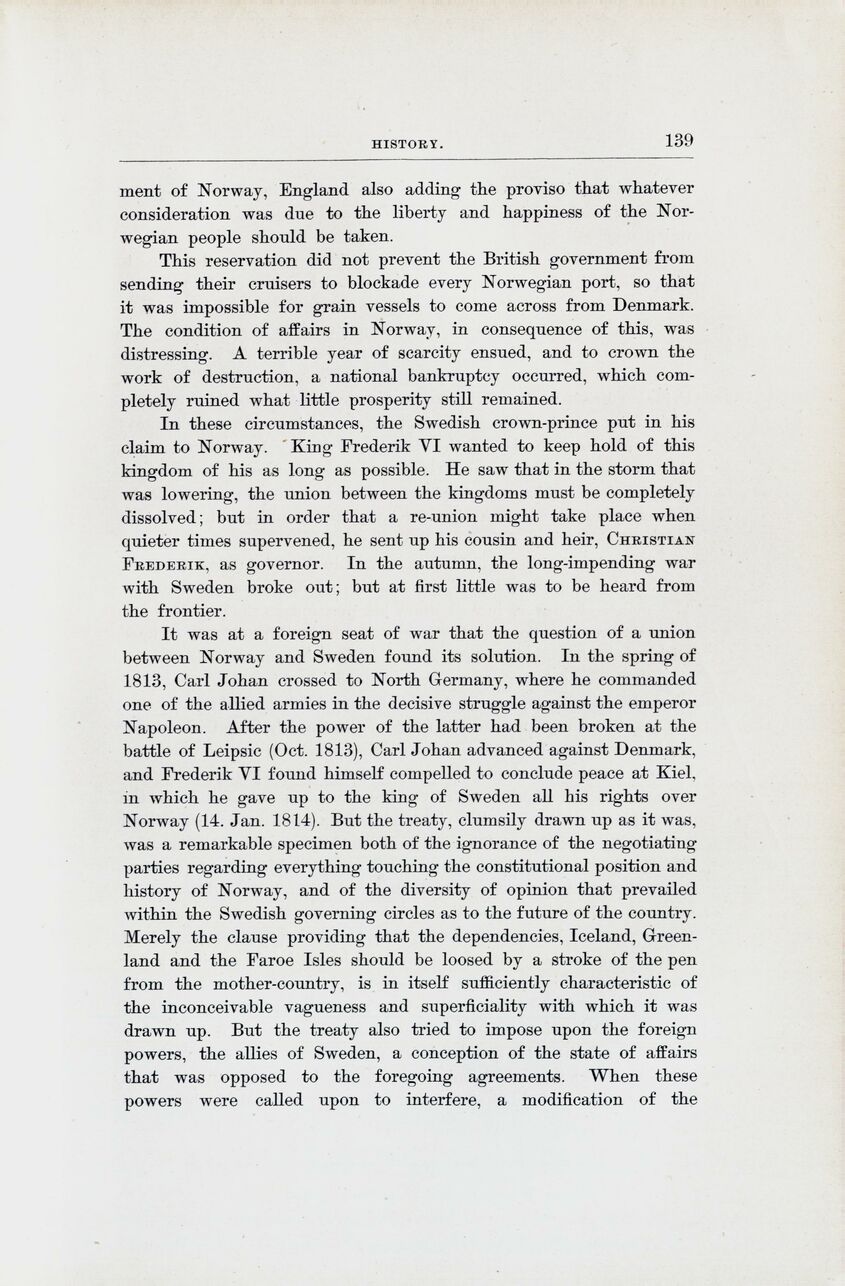
Full resolution (JPEG) - On this page / på denna sida - History, by O. A. Œverland

<< prev. page << föreg. sida << >> nästa sida >> next page >>
Below is the raw OCR text
from the above scanned image.
Do you see an error? Proofread the page now!
Här nedan syns maskintolkade texten från faksimilbilden ovan.
Ser du något fel? Korrekturläs sidan nu!
This page has been proofread at least once.
(diff)
(history)
Denna sida har korrekturlästs minst en gång.
(skillnad)
(historik)
acquirement of Norway, England also adding the proviso that whatever
consideration was due to the liberty and happiness of the
Norwegian people should be taken.
This reservation did not prevent the British government from
sending their cruisers to blockade every Norwegian port, so that
it was impossible for grain vessels to come across from Denmark.
The condition of affairs in Norway, in consequence of this, was
distressing. A terrible year of scarcity ensued, and to crown the
work of destruction, a national bankruptcy occurred, which
completely ruined what little prosperity still remained.
In these circumstances, the Swedish crown-prince put in his
claim to Norway. King Frederik VI wanted to keep hold of this
kingdom of his as long as possible. He saw that in the storm that
was lowering, the union between the kingdoms must be completely
dissolved; but in order that a re-union might take place when
quieter times supervened, he sent up his cousin and heir, Christian
Frederik, as governor. In the autumn, the long-impending war
with Sweden broke out; but at first little was to be heard from
the frontier.
It was at a foreign seat of war that the question of a union
between Norway and Sweden found its solution. In the spring of
1813, Carl Johan crossed to North Germany, where he commanded
one of the allied armies in the decisive struggle against the emperor
Napoleon. After the power of the latter had been broken at the
battle of Leipsic (Oct. 1813), Carl Johan advanced against Denmark,
and Frederik VI found himself compelled to conclude peace at Kiel,
in which he gave up to the king of Sweden all his rights over
Norway (14. Jan. 1814). But the treaty, clumsily drawn up as it was,
was a remarkable specimen both of the ignorance of the negotiating
parties regarding everything touching the constitutional position and
history of Norway, and of the diversity of opinion that prevailed
within the Swedish governing circles as to the future of the country.
Merely the clause providing that the dependencies, Iceland,
Greenland and the Faroe Isles should be loosed by a stroke of the pen
from the mother-countrv, is in itself sufficiently characteristic of
the inconceivable vagueness and superficiality with which it was
drawn up. But the treaty also tried to impose upon the foreign
powers, the allies of Sweden, a conception of the state of affairs
that was opposed to the foregoing agreements. When these
powers were called upon to interfere, a modification of the
<< prev. page << föreg. sida << >> nästa sida >> next page >>